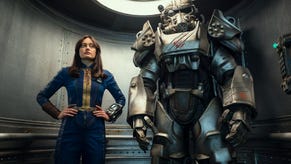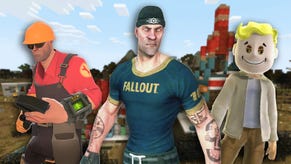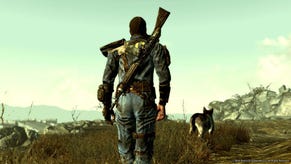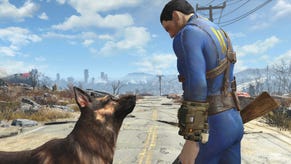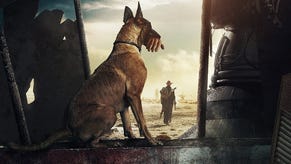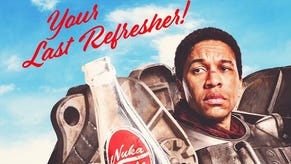Bethesda Softworks' Pete Hines
Now VATS entertainment.
Getting Fallout 3's quirky combat and non-linear narrative to work would be hard enough without having to please the famously picky fans of the series, alongside those won over by Elder Scrolls: Oblivion. We caught up with Bethesda's vice president of public relations, Peter Hines, to discuss how he learnt to stop worrying and love the bombs.
It's a challenge in the sense that it has been done. We had to do something that was not only cool and good, but it had to be true to Fallout. If it was just Washington DC as it was two years ago and we were just blowing that up, that's actually substantially easier: You just look at everything and go, "Okay, blow all that up and then we're done." But this is a different world from the one we know, with a different timeline.
You have to ask, "What would have been in the Fallout universe? What would have existed before 1950, where this universe splits off from our own and goes in this different direction?" So, creatively, you are spreading your wings a little bit and asking what DC would have looked like with the future that these people had envisioned rather than the one that we know. What that does is make it both a little bit familiar and a bit quirky. A gas station looks like a big rocket, for example: you can do stuff that makes things both familiar and, "What the hell is that?" at the same time.
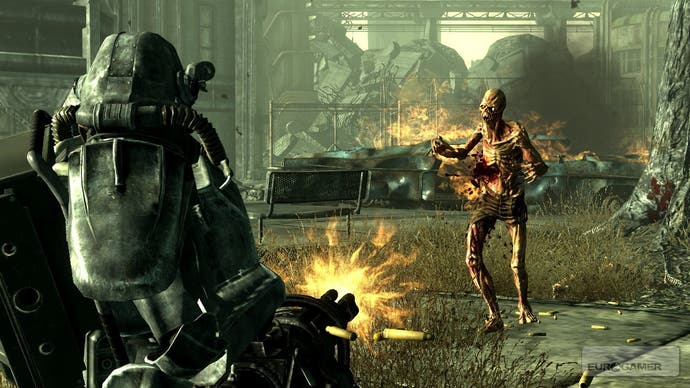
If it's overdone and it's not in the right tone, it absolutely does. Our lead designer is Emil Pagliarulo, and one of his key functions is to go through and do the humour check. You're trying to get gradations and you're trying to be careful about how many times you're presenting something to the player. I'll use an extreme example: swearing, when used appropriately, is really funny. If it's in every sentence you read it's just annoying; you're just trying to hard to be edgy. You have to ask, "How much are we using this, and is it appropriate for the person who's saying it?"
A lot of times it ends up being a distraction. Done poorly, it is horribly and terribly destructive to the vibe you're trying to set. Humour gone bad is worse than just about anything else you can try and do in a game. Even violence gone bad can still be almost comical in its execution. But humour? Nothing sucks the soul out of an experience than somebody who's clearly trying to be funny but is not. So I hope we've done a great job of balancing that and not going over that line.
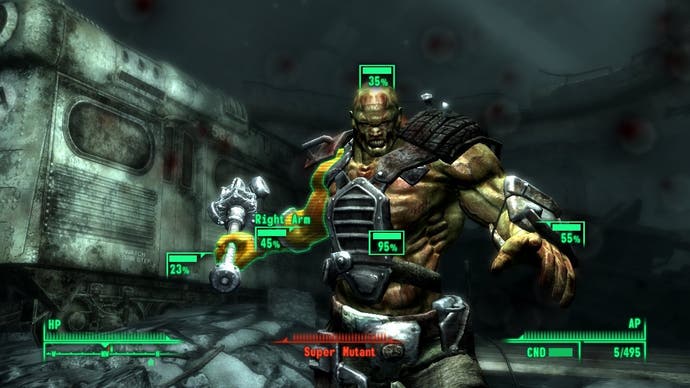
The reaction to Oblivion is very much a case of, "How do we do this better when we do it in Fallout?" opposed to, "Oh we always wanted to do this in the Elder Scrolls, but now we're doing Fallout we'll just put it in Fallout." There's none of that. Fallout's already such a rich series, such a great playground to work in, with the vibe and the tone and the moral choices.
What we really brought from Oblivion is just stuff like feedback on levelling. People didn't like the way the world levelled with the player, so we're going to do this differently. It's things like working out how to sculpt the experience for the player in terms of quests and giving you choices. We want to give you more choices in how to finish a quest rather than fewer choices and a lot more quests.


